|
|
|
|
|
|
|
|
|
|
|
|
|
|
|
|
|
|
|
Scientists |
|
|
|
|
|
|
|
|
|
|
|
|
|
|
|
About Station
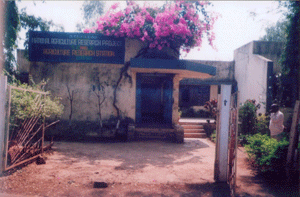
Agriculture Research Station was started in British Regime during the year 1918. During that period, this Research Station was known as Government Farm. Later, British handed over the Farm along with Land, Buildings, Records, Instruments and Staff etc. to Department of Agriculture, Maharashtra State. After that it was again handed over to Dr. Panjabrao Deshmukh Krishi Vidyapeeth during 1971-72. During the period of British and Department of Agriculture the work viz. Research work on Arboreum Cotton , Research work on Rainfed Wheat was being carried out at this station. Similarly it was the main centre for conducting the Multilocation Research Trials of Wheat from all over India.
Agro Climatic Information
| Latitude | 19.61 to 21.16 N |
| Longitude | 76.7-77.4 E. |
| Temperature | Max: 45-50°C ; Min 8-10°C |
| Average Rainfall | 750 to 1000 mm |
| Area | 5150. kms |
Infrastructure
|
Sr.No.
|
Particulars
|
No./Qty.
|
|---|---|---|
| 1 |
Land Position
|
|
|
Total Area
|
57.40 ha
|
|
|
Land under bunds, buildings and roads
|
7.26 ha
|
|
|
Land under cultivation
|
50.14 ha
|
|
| 2 |
Irrigation Facilities
|
|
| Wells under use | 2 | |
| Bore wells under use | 3 | |
| 3 | Machineries | |
| Tractor | 1 | |
| Thresher | 1 | |
| Panji | 1 | |
| 4 | Residential Facilities | |
| Big Quarter | 1 | |
| Medium Quarters | 3 | |
| One Rooms each without latrine/bathrooms | 10 |
Mandate
-
Research work on Pulses, Rainfed Wheat and Cotton
-
Seed production programmes of the main crops of the area
-
Multilocation trials of Station, University, State and National
-
Extension Activities of the District
Project Operating at Station
-
Research work on Rainfed and Irrigated Wheat
-
Extension Activities of the District
-
Seed production programmes of the main crops of the area
-
RAWE Student Training Programme
-
Multilocation trials of Station, University, State and National
Research Activities & Achievements
Research Activities
-
Development of wheat varieties suitable for rain fed as well as irrigation conditions
-
Development of wheat varieties better for high grain yield and grain quality.
-
Development of wheat varieties tolerant to heat and drought
-
Development of wheat varieties resistant to Rust, Leaf blight and K bunt diseases.
-
Development and Testing of wheat genotypes for Early and Late Heat Tolerance.
Objectives of the Programme
- To develop wheat varieties suitable for rain fed as well as irrigation conditions.
- To develop wheat varieties better for high grain yield and grain quality.
- To develop wheat varieties tolerant to heat and drought
- To develop wheat varieties resistant to Rust, Leaf blight and K bunt diseases.
-
Innovative Programme of development and Testing of new wheat genotypes for growing from 15th of September to 10th of January.
Germplasm Available
|
Aestivum
|
Durum
|
Total
|
|
|---|---|---|---|
| Developed at Washim |
68
|
30
|
98
|
| Wheat Res. Unit, Dr. PDKV, Akola |
17
|
07
|
24
|
| From other Centres |
80
|
48
|
128
|
|
250
|
Characterization of Germplasm Lines being utilized in Breeding Porogramme
| Rust Resistance(31) | |||
| Genotypes developed at ARS washim and tested at Rust screening nursaries at Mahabaleshwar and IPPSN Nursaries of Projest for black and brown rusts (11) PDKV Washim, WSM 1427, WSM 1462, WSM 1463, WSM 1413.5, WSM 1328.2, WSM 1469, WSM 1461, WSM 2512 , WSM 2573 , WSM 2579. |
|||
| Genotypes from other centres(20) FLW 8, FLW 9, FLW 20, FLW 24, HD 2781, HD 2987, HD 2187, Raj 4132, VW 486, NI 5439, AKW 3722, AKDW 2997, AKW 381, GW 322, GW 2005.1.NIAW 1415,UAS 304, UAS 316, UAS 324, PBW 675 |
|||
| More than 80 grains /Spike (60) | |||
| WSM137.2, 132.4,128.3, 121.1, 122.1, 52, 104, 105, 105.2, 109.1, 109.2, 10.9.3, 109.6, 117, 119.1, 119.6, 121.4, 128.1, 133.3, 133.7, 135, 139, 150.1, 154, 156, 157.5, 159.9, 159.11, 163.5.1, 164.1, 165.8, 166.5, 174, 170, 175.7, 175.6, 194, 203, BCRTS/BKOM/LLARETA, ARTICO/AJAIA/HVAL/TAD88059//, OBEI//SOOTY9/RASCON.37, AINZEN//6 CMH 82A-1062, AA2//ALTAR84/ALD/3/AJAIA,PORRON.1/MRB589-511 PORR, UAS 320,UAS322,AKDW 4523, NIDW 15,UAS 304, 316,324,UP 2697, PBW 66, GW 1270, KO-0916, Eduyt 50, Eduyt 67, AKDW 3991.2. | |||
| Bold and Good Quality Grains (46) | |||
| WSM 42,55,76,1472,11,175.7,14.3,163.7,159.11,159.1,1463,1407,Sooty 9, Rascal 37//GUA, SOMAT 3. Green 22/2/RAS, HI 8498, PBW 233,IDSN 42, IDSN 47, IDSN 86, IDSN 110, AKDW 4523, HI 8718, HI 1591, HI 8720, UAS 334, UP 2697, UP 2797, JO 432, PBW 66, MACS 9, FLW 20, Eduyt 50,106,85, AKDW 3991.2, MACS 1967, N 59, Lok 1, HD 2781, Raj 1555, UAS 433, DWR 1236, MPO 1232. | |||
| Germplasm for Earliness (57) | |||
| WSM42, 14.5, 41, 51, 52,10, 16.1, 21, 30, 29, 27,32, 76, 57.2,182, 131,135,184, 105,151,126, 1418,1451, 1427.5, 1432, 1443, 103.4, 1479,104,109.2,110.2,129,120,122.1, 128.1, 131.6, 140, 143.6, 157.3,165.6, 179.5,175.7, 188.2, AKW 3722,AKW 4204, AKW 381, Lok 1, HD 2987,MP 3299, Raj 4253, Raj 4132, JO 432, MP 3349, MP 1251, NW 5034, HUW 659, UAS 316, HD 3097, PBW 675 | |||
| More Tillers/m (28) | |||
| FLW 8, HD 2781, JO 432, Akaw 3722, Akaw 4628, Akaw 4630, WSM 1427.5, WSM 1328.2, WSM 1438, WSM 2573, WSM 1472, WSM 159, WSM 175, WSM 162, WSM 57,WSM 174, FLW 8, VW 486, JW 2005.1, RD 1029. A 9.30.1, B. Yellow, HI 8674, HI 8678, Eduyt 15, Eduyt 44, Eduyt 72. Agra Local. |
Research Achievements
A Wheat variety PKV Washim (WSM 1472), promising for Rainfed and Restricted Irrigation Conditions have been released during the year 2009-10 for Vidarbha region.
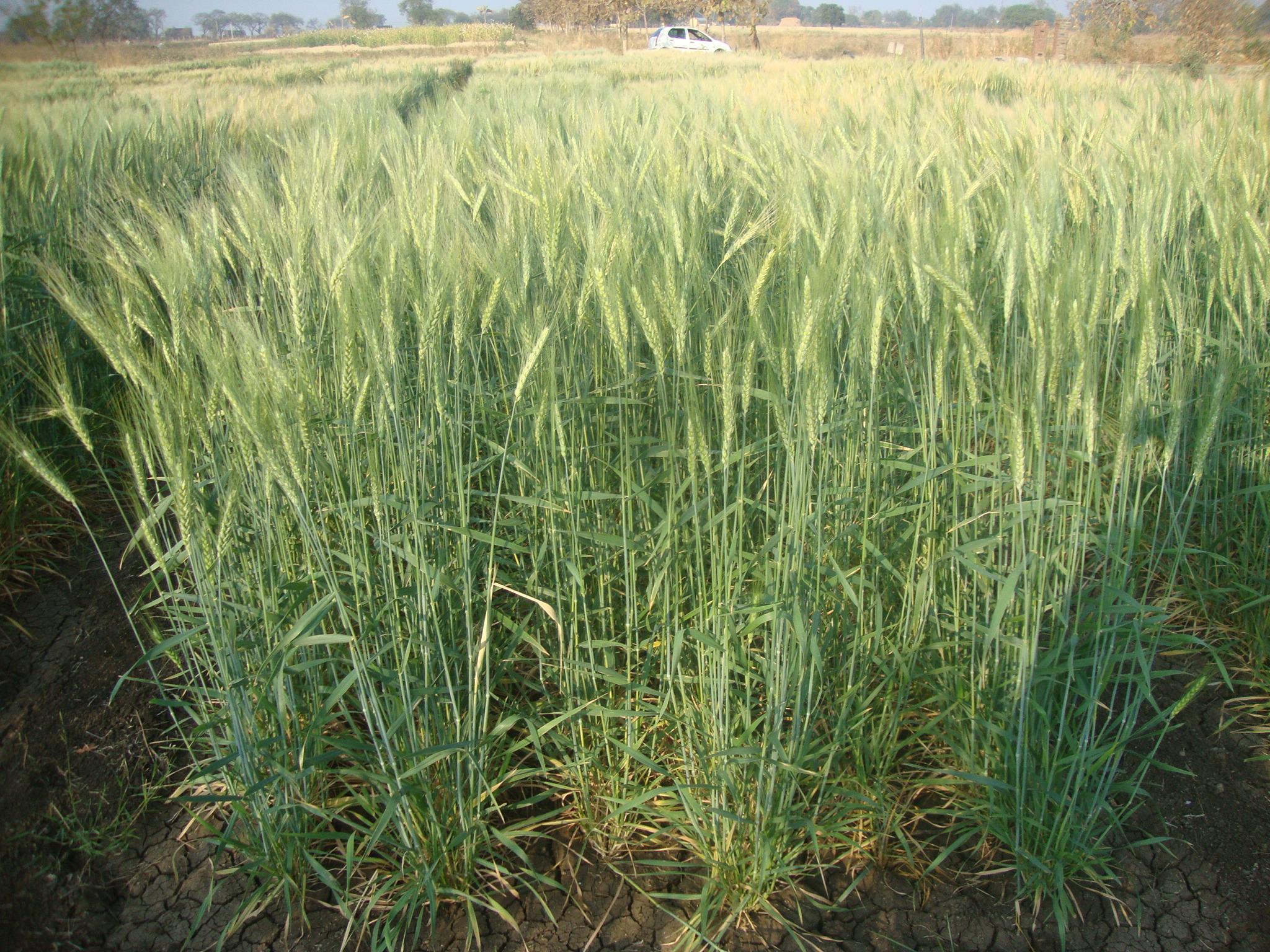
Salient Features of the Variety -PKV Washim ( WSM 1472)
- It gives higher yields under rainfed and restricted irrigation conditions.
- It fetches very high price in the market as compared to the check varieties.
- Grain appearance and chapati making qualities of this variety are superior and found better over all the checks.
- From this variety, better pasta and bakery products could be made.
- It is multiple resistant to diseases.
- It is early heat and drought tolerant
- It has export potential.
- It has good storability.
Transfer of Technologies
Extension activities carried out at Agriculture Research Station, Washim on regular basis every year to benefit the farmers og region.
| Sr.No | Particulars |
| 1 | Farmers visited the station for various Crop and field problems |
| 2 | Krishi Melawas |
| 3 | Workshops/Seminars |
| 4 | District Monthly Workshops |
| 5 | Field Visits |
| 6 | Dignostic Visits |
| 7 | Field day organized |
| 8 | Attending farmers complaintsby the team of scientists |
| 9 | Publishing Popular Articles/ folders |
| 10 | TV/Radio Talks |
| 11 | Field Days |
| 12 | Crop demonstrations |
Photographs of Extension Activities
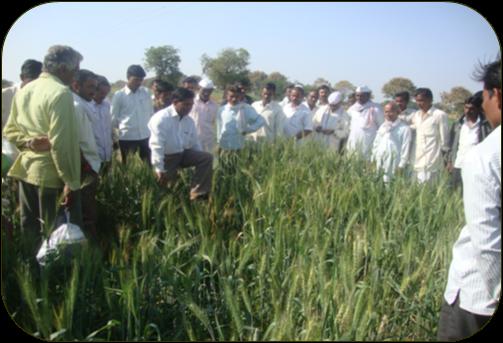 |
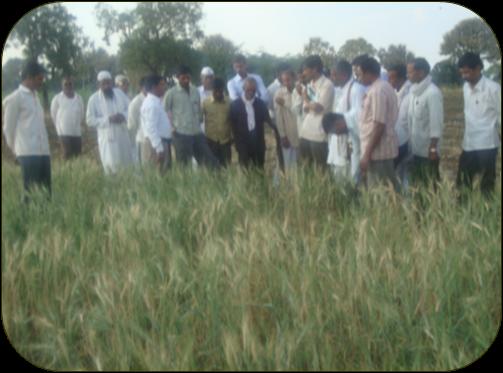 |
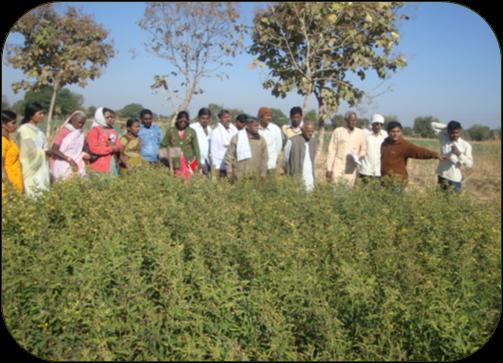 |
||
 |
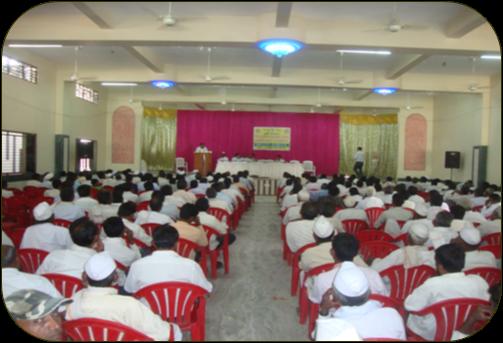 |
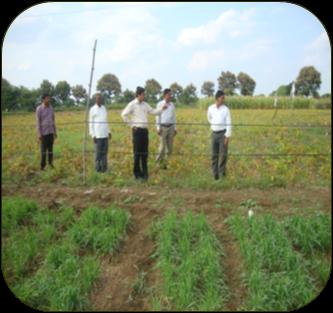 |
Contact Information
Senior Research Scientist
Agricultural Research Station
Washim – 444805
Ph : 07252-232120

 January 2nd, 2014
January 2nd, 2014 


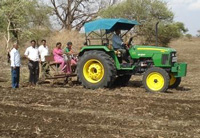


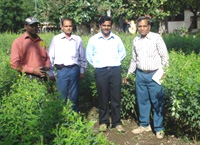
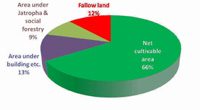

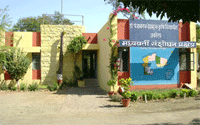
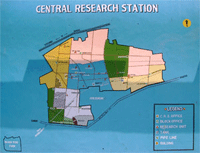
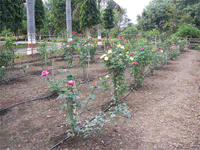
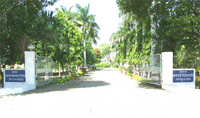
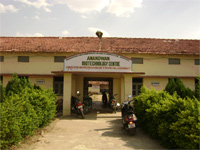

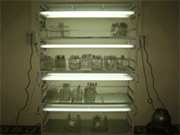
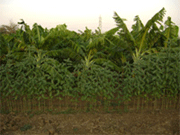
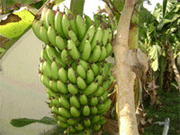








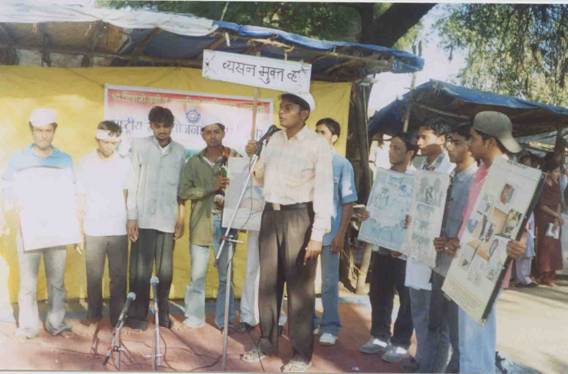


















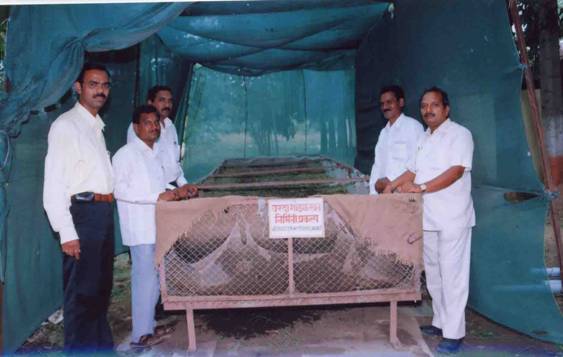

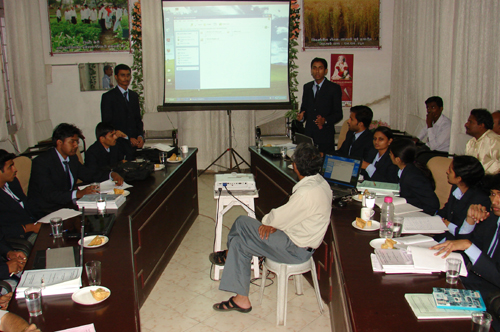

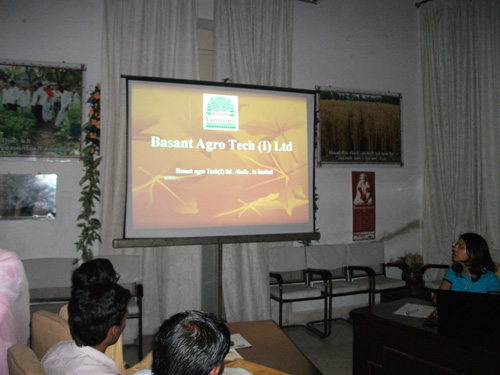
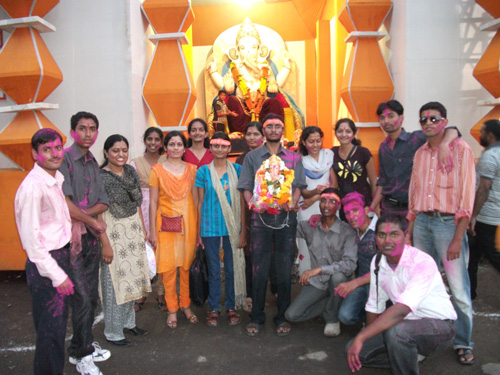



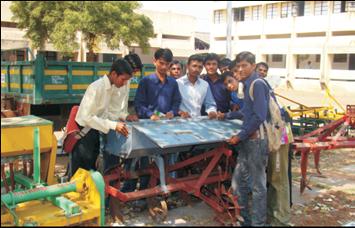








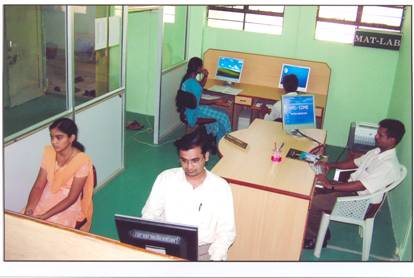


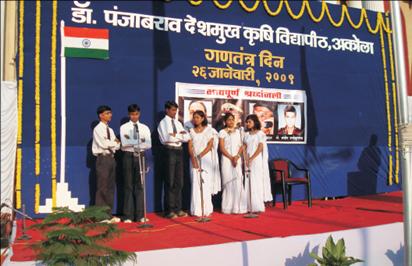
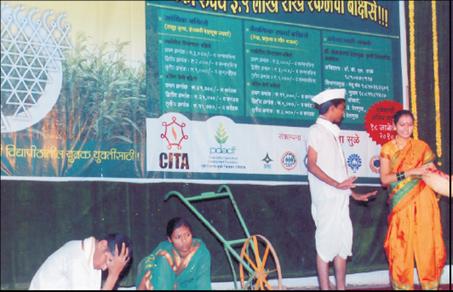








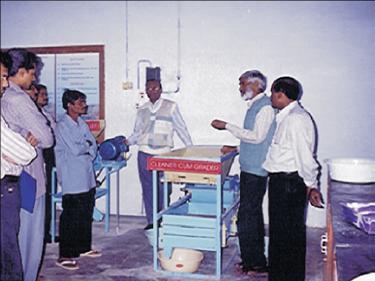



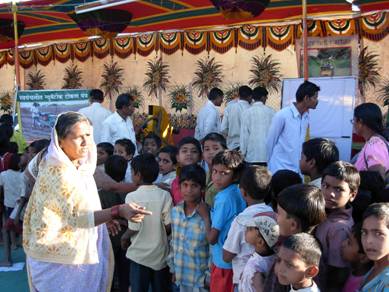



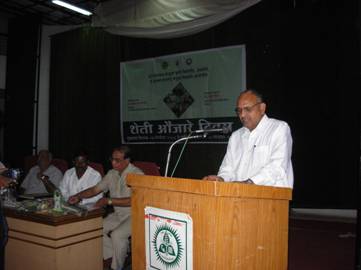
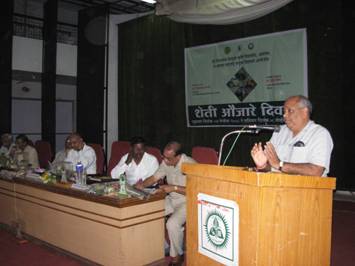




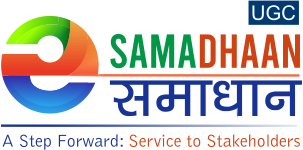
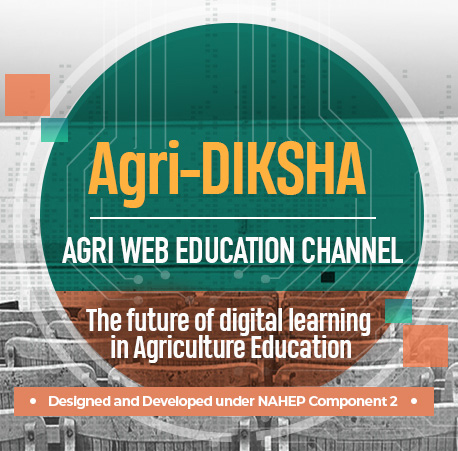

 Krishikosh Repository
Krishikosh Repository




